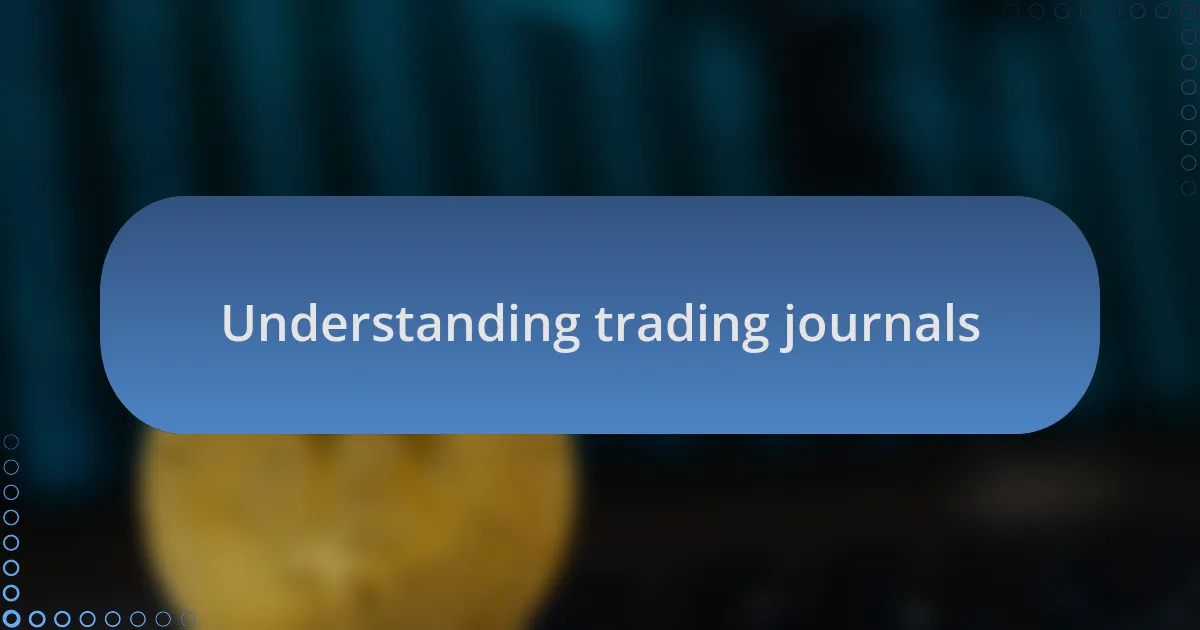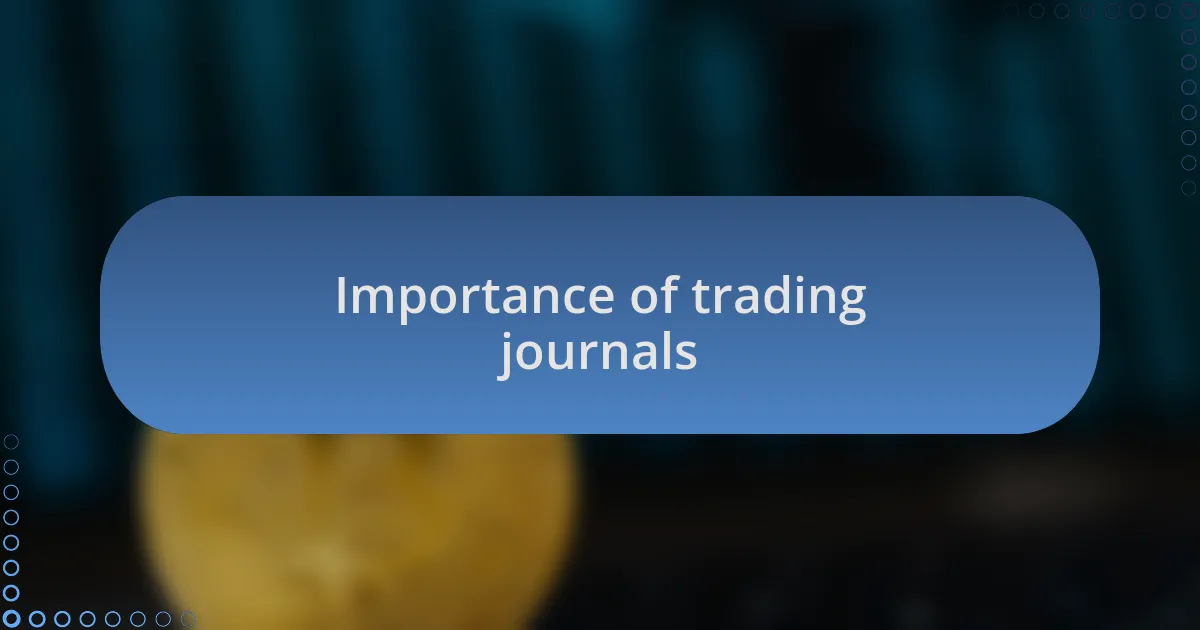Key takeaways:
- Trading journals help illuminate decision-making processes and allow traders to analyze successes and failures.
- Maintaining a journal fosters accountability, discipline, and serves as a roadmap for continuous improvement in trading strategies.
- Analyzing trades reveals patterns influenced by emotional decision-making, leading to improved outcomes and deeper understanding of successful strategies.
- Engaging with past decisions through journaling cultivates a motivation for consistent learning and skill enhancement in trading.

Understanding trading journals
Trading journals are more than just records of trades; they are a window into your decision-making process. During my early days in trading, I remember piecing together my first journal, noticing how documenting my trades illuminated the reasons behind my successes and failures. Have you ever felt a sense of clarity when reflecting on past choices? That’s what a trading journal offers – a chance to analyze and learn from every market move.
As you sift through the pages of your journal, you uncover patterns that might otherwise go unnoticed. For instance, I found that I consistently made impulsive trades when I was stressed. Recognizing this trend helped me develop a strategy to manage my emotions better. Isn’t it fascinating how much our mental state influences our trading decisions?
Moreover, a well-maintained trading journal encourages accountability. By committing your thoughts and strategies to paper, you establish a benchmark for future performance. I recall a particular week when I was tempted to stray from my plan. Reading my own documented rationale helped me stay the course. How often do we lose sight of our original strategy when market noise chimes in?

Importance of trading journals
Maintaining a trading journal isn’t just beneficial; it’s transformative. I vividly recall a period when I started journaling more diligently, and the impact was profound. Noticing my trading mistakes on paper stung, but it also initiated a drive for improvement. Isn’t it remarkable how confronting our errors can be the first step towards mastering the craft?
Another crucial element is that journals provide a roadmap for your trading journey. I often revisit my entries, using them to guide my next steps in the market. It’s akin to having a personalized mentor; I can spot weaknesses and strengths in my strategy, fostering a sense of continuous learning. Have you ever looked at your past decisions and felt a spark of inspiration for future trades?
Lastly, integrating a trading journal into my routine has naturally fostered discipline. I remember those days where the lure of quick gains led me off course. However, by referring back to my documented strategies, I was often reminded of my long-term objectives. Isn’t it fascinating how a simple record can become a powerful tool for focus and motivation?

Benefits of analyzing my trades
Analyzing my trades has been a pivotal factor in enhancing my trading skills. One time, I reviewed a string of losses, and I noticed a pattern: I often let my emotions dictate my decisions. This revelation was eye-opening. It made me wonder—how many traders fall into the same trap, only to repeat their mistakes? Understanding this aspect of my trading psychology was essential in shifting my approach and ultimately improving my outcomes.
Another advantage of trade analysis is the ability to identify successful strategies. I distinctly recall a certain strategy that worked well over a few trades. By breaking down those successful moments in my journal, I realized that specific market conditions played a crucial role. It’s almost like piecing together a puzzle. When have you analyzed a winning trade and discovered the secrets behind its success? Those insights can be your competitive edge going forward.
Furthermore, keeping track of my trades has cultivated a deeper sense of accountability. I can no longer hide from my decisions; every trade I’ve made is laid bare in my journal. One particularly disastrous trade haunted me for weeks. Rather than brush it off, I faced it head-on, dissecting what went wrong. This process not only solidified my resolve to improve but also ignited a passion for continuous learning. Isn’t it liberating to know that each entry brings me closer to becoming a more consistent trader?